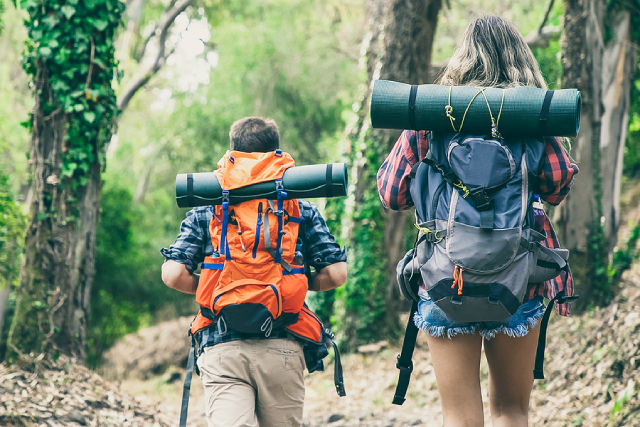
The world is full of things to see with plenty of new experiences waiting to be discovered, with travelling as the only way to encounter them in the flesh. But given the high costs associated with travelling, the thought of going to unfamiliar yet exciting places can be off-putting to most budget-conscious individuals.
However, what if we told you that there are plenty of ways to visit your dream destinations without a generous budget. One such way is through backpacking, an independent form of travelling that’s inherently low-cost and is feasible for everyone.
So, what Is backpacking all about?
Backpacking is a method of travelling that requires you to bring just a backpack for the entirety of your trip, packing everything you need to survive in one place.
Additionally, it’s an inexpensive way to travel by cutting out unnecessary costs typical of a standard trip, such as staying in hotels, eating out at restaurants, and taking taxis to tourist attractions. If you’re keen on checking places off of your travel bucket list, backpacking is undoubtedly the most efficient way to go. Since this way of travelling requires building up experience to make the most out of future trips, it’s best to start travelling locally first. Here are some beginner tips to keep in mind before embarking on your first backpacking trip:
Beginner Tips For Backpacking
1. Get a heavy-duty pack and bring only the absolute necessities
Traditional backpacking will require you to travel and pack essential and light as you need to survive on the road, so you’ll need to invest in a specialised travelling backpack with lots of space to store your things. These essential things will include all-weather clothes, a sleeping bag and tent, medications, a water bottle, and other edible and hygiene provisions.
When storing these items, keep in mind to place the lighter items, like clothes, at the bottom of your pack, the heavier ones up top and close to your back, and the rest that need to be accessed quickly, like medicine, at the very top. Keeping the heavier items close to your back optimally distributes the weight and grants you more comfort, enabling you to travel further without suffering from fatigue.
However, while these are for traditional backpacking procedures, we understand that there are many more modern arrangements like backpacking hostels, Airbnb and other co-sharing arrangements. There are even people who sleep at an airport on various layovers or on their last days in a bid to cut as much cost at they can. Whatever it is, balancing safety, cost and efficiency is the way of a backpacker, and we say do what you feel best fits your comfort and budget.
2. Stay in hostels with free breakfast and cook your own food
Although trying the local cuisine is part of the travel experience, eating out daily won’t do any favours for your limited budget. As such, it’s recommended to choose cheap lodgings, such as hostels, that also offer free breakfast. Most of the time, these meals are enough to last you through the entire day, saving you on costs that could be used elsewhere.
If ever you’ll need more sustenance later in the day, cooking your own food or trying out street food are the best options to fill your stomach. The latter option lets you try out unique gastronomic delights on the cheap end of the spectrum.
3. Prioritise your safety
Despite the main goal of cutting travelling costs wherever possible, you should always prioritise your safety before it. This means going for costlier alternatives in lodgings, transport, and food whenever the budget options prove far too risky.
Also, on top of your medical supplies, it’s recommended to write down the get the contact details of various medical assistance services in Singapore before you travel, in case you end up in a place without Wi-Fi or internet connection.
4. Research, research, research
The last and most crucial way to cut costs is by doing your homework. Find out when the best deals can be found locally, knowing the cheapest and most efficient ways of transport and planning your route of advancements are all important tools. But we say research isn’t just when you’re at home. Talk to the locals on the ground and ask them for all sorts of deals they would know. Cheap food, cheap meals, great deals and the like – it doesn’t hurt to ask and make a few friends along the way!
Conclusion
Backpacking is the best way to see new places on a budget, but it will require you to acquire some experience and increase your endurance. Start small and learn from first-hand experience and take tips from veterans so you can go further and further on your next adventure.
Still, we say that safety is something no amount of money can make up for, and to take EMA Global provides medical services in many parts of the world. Check in to see if any arrangements can be made, especially if your trip involves risky activities, and our experts will advise you on what arrangements can be made. Stay safe and travel fair!

